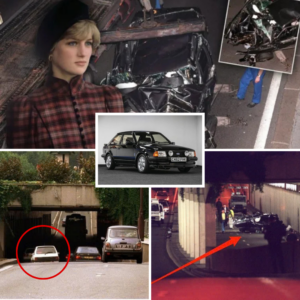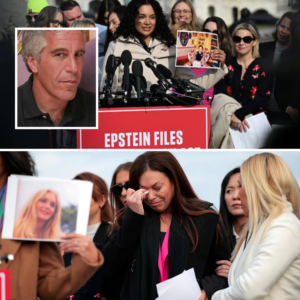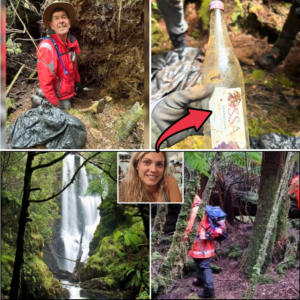The nearly four-year saga of Tom Phillips, the New Zealand father who vanished with his three children into the Waikato wilderness, came to a tragic end on September 8, 2025, when Phillips was fatally shot by police during a confrontation. Since his disappearance in December 2021, speculation about his motives has run rampant, with theories ranging from a custody dispute to a rejection of modern society. However, a shocking revelation from family members and recently uncovered evidence has shed new light on why Phillips chose to live off the grid with his children, Jayda (12), Maverick (10), and Ember (9). Far from being driven by criminal intent or ideological rebellion, Phillips’ actions stemmed from a profound fear for his children’s safety, triggered by a traumatic encounter with a local gang in 2021. This fear, rooted in a specific threat to his family, led him to abandon society and seek refuge in the bush, believing it was the only way to protect his children.
The Tragic End of a Fugitive
The events culminating in Phillips’ death unfolded in the early hours of September 8, 2025, in Piopio, a small town in New Zealand’s Waikato region. Police responded to a burglary at a farm supply store, where CCTV footage captured two figures—one identified as Phillips and another believed to be his daughter Jayda—stealing goods and loading them onto a quad bike. As police pursued the suspects, they deployed road spikes, forcing the quad bike off the road near Marokopa. When an officer approached, Phillips opened fire with a .308 calibre rifle, critically injuring the officer in the head and shoulder. A second officer returned fire, killing Phillips instantly. Jayda, who was with him, was unharmed and taken into custody.
Later that day, police located Maverick and Ember at a well-hidden campsite 2 kilometers away, concealed under camouflage netting in dense bushland. The campsite contained quad bikes, tarpaulins, gas equipment, and basic supplies, indicating a carefully planned existence. The children, though physically healthy, were described as emotionally shaken. They were placed in the care of Oranga Tamariki, New Zealand’s child welfare agency, and reunited with their mother, known as Cat, who expressed relief at their safety but grief over Phillips’ death.
The incident shocked the close-knit Marokopa community, which had followed the family’s disappearance with a mix of concern and fascination. Phillips had been a fugitive since December 2021, following a brief 19-day disappearance with his children in September 2021, which he claimed was a camping trip to “clear his head.” Charged with wasting police resources, he was due in court but fled again, this time for years, evading a massive manhunt that included an $80,000 reward and widespread media coverage.
The Real Reason for Fleeing
Initial theories about Phillips’ motives centered on a custody dispute with Cat, with some speculating he was rebelling against societal norms or hiding from criminal charges. However, a family member’s statement, corroborated by police interviews with Jayda, has revealed a far more personal and harrowing reason. In mid-2021, Phillips had a violent altercation with members of a local gang in Te Kuiti, a nearby town. The gang, reportedly involved in methamphetamine distribution, confronted Phillips after he inadvertently disrupted one of their deals by parking his vehicle near their meeting spot. The encounter escalated, with gang members allegedly assaulting Phillips and threatening to “come after” his children if he reported them to authorities.
Terrified by the gang’s influence in the region and distrustful of police protection, Phillips became convinced that his children were in imminent danger. “He told me he couldn’t risk losing them,” his sister, Rozzi Phillips, shared in a private family conversation that later reached investigators. “He said the gang knew where we lived, and he wasn’t going to wait for them to follow through.” Phillips, a skilled bushman and hunter, believed the only way to keep Jayda, Maverick, and Ember safe was to disappear entirely, cutting off contact with society and living in the wilderness where the gang could not find them.
This fear was compounded by an earlier incident in 2020, when Phillips’ home was vandalized, with graffiti referencing the gang. Though he reported it to police, he felt the response was inadequate, further eroding his trust in authorities. By late 2021, Phillips had begun preparing for a permanent escape, stockpiling supplies and scouting remote areas of Waikato’s rugged terrain. His 19-day disappearance in September 2021 was likely a test run, allowing him to assess whether he and his children could survive off the grid.
Life in the Wilderness
The campsite where the children were found offers a glimpse into the life Phillips created for his family. Hidden deep in the bush, it was equipped with essentials for survival: solar-powered lights, preserved food, and tools for hunting and fishing. The children had been taught basic survival skills, including how to navigate the forest and maintain the campsite. Despite their isolation, they appeared well-fed and physically healthy, though experts worry about the long-term psychological impact of living without formal education or social interaction.
An eyewitness account from early 2025, reported by a Marokopa farmer, described seeing Phillips and his children driving in a black Toyota 4WD, singing folk songs and appearing joyful. “They looked like they were on an adventure,” the farmer said. “Tom seemed calm, like he’d found peace out there.” This aligns with Jayda’s statements to police, where she described her father as protective and dedicated, teaching them to live off the land while shielding them from perceived threats.
However, Phillips’ efforts to sustain this lifestyle led to criminal activity. He was linked to several burglaries, including a 2023 armed bank robbery in Te Kuiti, allegedly committed with one of his children as an accomplice. These acts, investigators believe, were desperate measures to acquire supplies for the family’s survival. The quad bike used in the final burglary was stolen months earlier, and the rifle used to shoot the officer was traced to a 2024 theft from a rural property.
Community and Official Reactions
The revelation of Phillips’ motive has sparked widespread sympathy in Marokopa and beyond. Many locals, already conflicted about his fugitive status, now view him as a father driven to extremes by fear. “He wasn’t a bad guy,” said a neighbor, who requested anonymity. “He just thought he had no other choice.” Others, however, condemn his actions, arguing that exposing his children to danger and crime was irresponsible. The injured officer’s survival has been a point of relief, but his severe injuries have fueled criticism of Phillips’ decision to shoot.
Prime Minister Mark Carney, sworn in earlier in 2025, called the incident “a heartbreaking reminder of how fear can spiral into tragedy.” He promised a review of police protocols for handling armed suspects, particularly in cases involving children. Police Commissioner Richard Chambers defended the officer’s actions, stating, “When someone shoots at our officers, we have no choice but to respond with force to protect lives.” He acknowledged the complexity of Phillips’ motives but emphasized that his criminal actions endangered others.
Cat, the children’s mother, has remained largely silent but issued a brief statement: “Tom loved our kids, and I believe he thought he was protecting them. I just wish it hadn’t ended this way.” The children, now in counseling, face a challenging reintegration into society, with questions about their custody and future education still unresolved.
A Nation Reflects
The Phillips case has prompted soul-searching in New Zealand about the pressures that drive individuals to such extremes. The gang-related threat that sparked his flight highlights ongoing issues with organized crime in rural areas, where police resources are often stretched thin. It also raises questions about how families in crisis can access support before resorting to drastic measures.
Phillips’ story is one of a father’s love twisted by fear and desperation. His decision to flee was not about rejecting society or defying the law but about shielding his children from a danger he believed was real and immediate. While his methods—burglary, armed resistance—cannot be excused, the underlying motive humanizes a man many had labeled a criminal or eccentric.
As the Waikato community mourns and the nation watches the children’s recovery, the case serves as a poignant reminder of the lengths a parent will go to protect their family, even at the cost of their own life. The truth behind Tom Phillips’ flight into the wilderness is not one of rebellion but of a father’s desperate attempt to outrun a threat he could not face alone.




